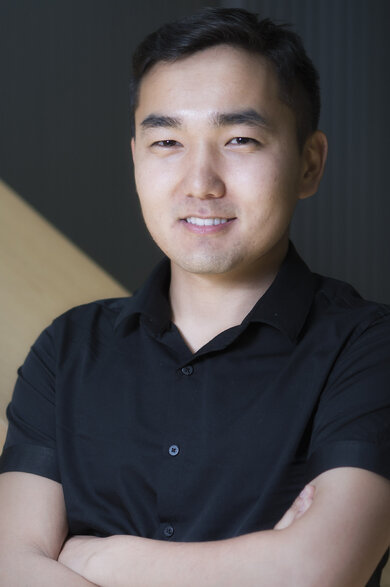
Enkhdavaa Batlkhagva received his Bachelor’s degree in Electronics Engineering Technology from the Mongolian University of Science and Technology in 2015. After his graduation, he worked as a developer in a start-up company, which develops home automation systems. During his work, he specialized in schema design of sensors and implementation of wireless networks. In 2017, he was an intern at Innovations for High Performance Microelectronics Institute in Frankfurt, Germany. The internship focused on the topic of a wireless sensor network, as well as field power measurement. Subsequently, he worked on a payment system of a bank as an embedded software engineer for almost one year. He is interested in Embedded Systems, Machine Learning, Internet of Things, and Software Architecture.
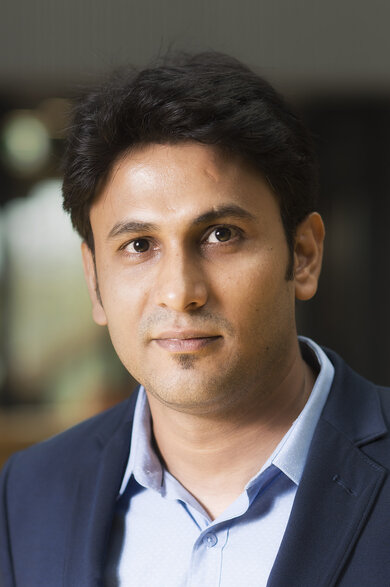
Anshal Joshi obtained his bachelor’s degree in Computer Science Engineering from Guru Gobind Singh Indraprastha University (Delhi, India) in 2012. He worked as a software developer for two years at HCL Technologies Ltd and was involved in web content management. He completed his master’s degree in Computer Engineering from the University of Puerto Rico (USA) in 2017. His master's thesis was titled American Sign Language Translation using Edge Detection and Cross-correlation. He implemented a working prototype of a translation system that can translate the American Sign Language to English text using a common computing environment. During his master’s degree he worked with the Google Ara Project as a summer intern at the University of Puerto Rico. His interests are computer vision, machine learning, system architecture and model-driven development.
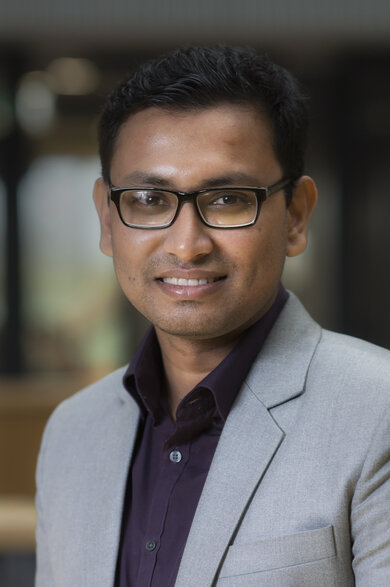
Hossain Muhammad Muctadir received his Bachelor's degree in Information Technology with a Software Engineering major from the University of Dhaka, Bangladesh (2013) and Master's degree in Software Systems Engineering from RWTH Aachen University, Germany (2017). He worked with FEV GmbH for his master's thesis where he studied Software Product Line (SPL) in the context of the automotive industry and implemented a similarity analysis framework that helps to identify SPLs from existing software components. Hossain has been working as a software developer for more than five years in different organizations, both in Bangladesh and Germany. During his professional career, he has developed desktop and web applications as well as augmented reality applications for HoloLens. He has also worked in research projects since his bachelors studies and made several publications. After graduating PDEng, his goal is to participate in applied research and advanced development in the fields related to Machine Learning, Cloud Based Systems, and Software Architecture.
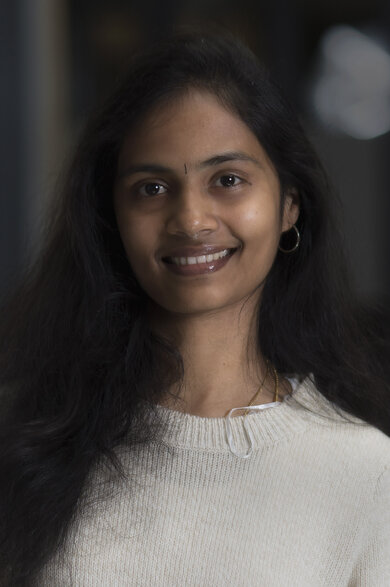
Kavya Shiva Kumar received her Bachelor’s degree in Telecommunication Engineering from the PES Institute of Technology affiliated with the Visvesvaraya Technological University, India. She then worked for a year at Cisco (India) in the network security domain. Following that, she pursued her Master’s degree in VLSI Design and Embedded Systems at the BMS College of Engineering also affiliated with the Visvesvaraya Technological University, India. During her master’s studies, she worked at Robert Bosch (India), where her work primarily focused on the validation of automotive microcontrollers. Her master’s thesis, entitled “Detection of the possibility of Laryngeal Cancer through MFCC analysis,” proposes a method to detect throat cancer in the early stages through the analysis of voice. She has a passion for embedded software design and development.
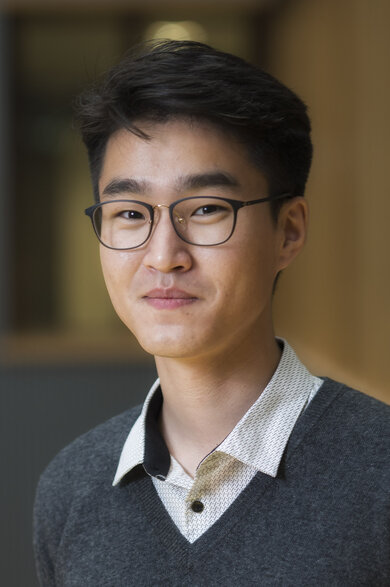
Lkhagvadorj Battulga received his Bachelor of Science in the field of Information Technology from the National University of Mongolia in 2015. After receiving his bachelor’s degree, he worked as an Information Security Analyst in a telecommunication company for a year. In 2018, he received his Master of Science in Computer Science from Chungbuk National University, South Korea. During his master’s studies, he specialized in the field of Data Analysis, Machine Learning, and Artificial Intelligence. In addition, he worked as a System Developer / Data Analyst on the Smart Factory 4M project, which was funded by the South Korean government. His thesis “Hierarchical Clustering Approach for Selecting Representative Skylines,” it optimized the widely used data mining algorithm called skyline. Nowadays, he is mainly focused on creating a relation between his scientific and practical knowledge with industrial state-of-the-art architectural solutions and designs.
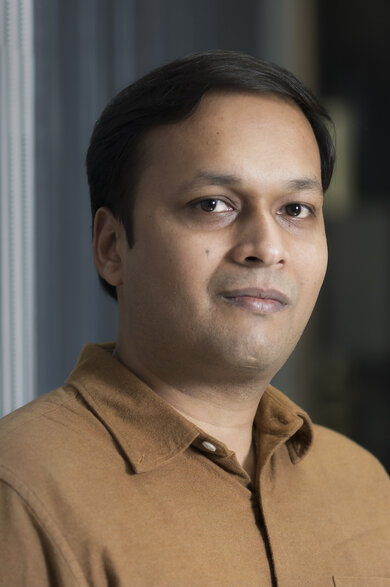
Manu Agarwal received his B.Tech degree in Electronics and Communication engineering (2009) from the Jaypee Institute of Information Technology University, India. After graduation he joined Infosys Technologies India Private Ltd as a software engineer. During his Infosys days ,Manu was involved in solutions development on the Java based platform. These solutions were primarily intended for Health, Life Science and retail domain projects. In 2014, Manu received his master’s degree in Software Engineering from the National University of Singapore. Post master’s degree, Manu worked in the consulting firm Accenture Singapore Pte. Ltd till May 2016.During his Accenture tenure, Manu helped the clients in the retail and the telecommunication domains with consulting services and technology solutions. In mid-2016, he joined the Cross Disciplinary Data Intensive Analytics Group of the Agency for Science Technology and Research (A*STAR), Singapore as research staff. His research work in A*STAR was on AI based technology development for the urban mobility as well as for the prognostics and predictive maintenance domains.
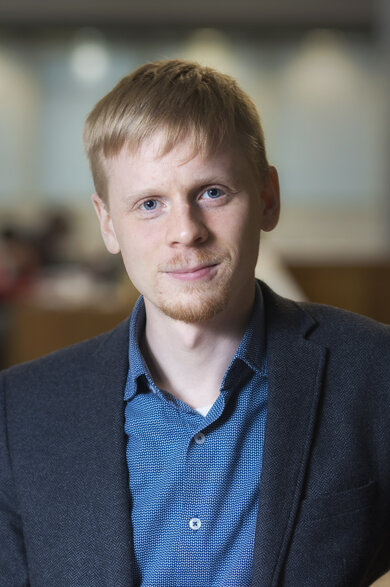
Mark Laane received his bachelor’s degree in Computer Engineering from the University of Tartu (Estonia) in 2015. In 2017 he graduated with a Master of Science in Software Engineering from the University of Tartu. His master’s thesis, “EyeTal – A Fully Eye-Controlled Map Editor,” involved creating an eye-controlled application for editing spatial data. During his master’s studies and afterwards, he worked in an international software development company Datel as a software engineer. He is interested in topics related to robotics, full-stack web development and software architecture.
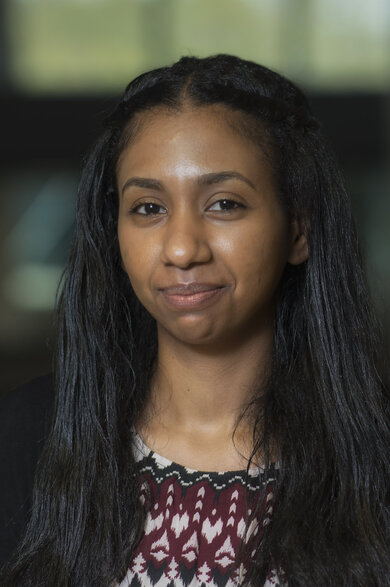
Meram Salih received her Bachelor’s degree in Electrical and Electronics Engineering (2013) from the University of Khartoum, Sudan. She received a Master’s degree in Embedded System from Kingston University, in the United Kingdom (2016). Her thesis, “Automatic Characterization of Focal Liver Lesions in Contrast Enhanced Ultrasound”, explored the possibility of using machine learning algorithms to automatically diagnose liver cancer from ultrasound videos. After graduation, she worked as a systems engineer for the Sudanese Electricity Distribution Company. Her main work was focused on software development for manufacturing and testing energy meters. She is interested in software architecture and design.
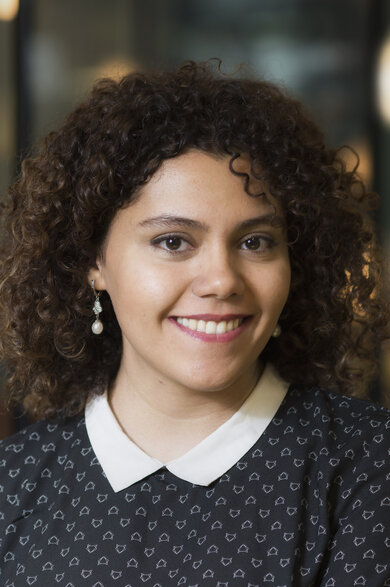
Nobahar Arian received her Master of Artificial Intelligence from Alzahra University of Tehran (Iran). She conducted her master’s study on Image Processing with a focus on Image Retrieval. Meanwhile, she worked as a software developer for a payment system provider. After graduation, Nobahar received her MBA course from University of Tehran as she has always been curious about Business and Management. Her main interests are Software Design and Entrepreneurship.
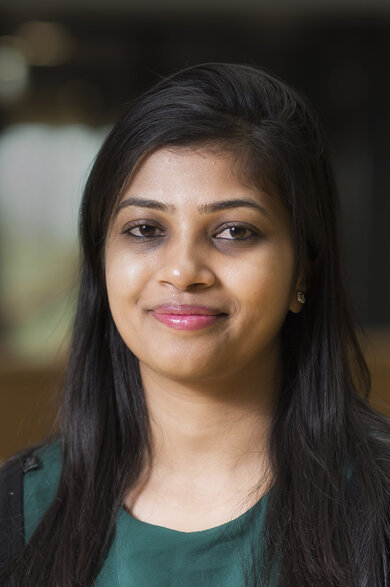
Priyanka Patel received her Bachelor in Engineering degree in Electrical and Electronics from R.V.C.E. Bangalore, India in 2014. Her thesis was in the Networking Research domain comparing various network protocols. After graduation, she worked at Cisco Systems, India in the IT department (2014 - 2018). She worked as a full stack application developer in the Supply Chain and Requirements/Feature Management domain. She has also worked as an SaaS backend designer. Her interests are Software Architecture, Data Science, and Artificial Intelligence.
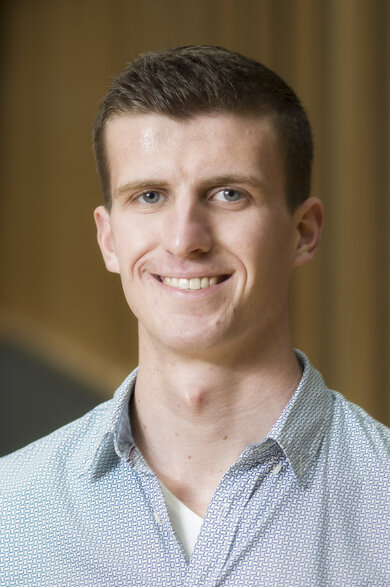
Robin Mennens received his bachelor’s degree in Software Science (2016) and his master’s degree in Computer Science and Engineering (2018) from Eindhoven University of Technology (The Netherlands). During his master’s program, he had an internship and carried out his master’s thesis project at ProcessGold in Eindhoven. His master’s thesis, “Graph layout stability in process mining”, was in the fields of process mining and graph drawing, and involved the development and implementation of a graph layout algorithm. He is interested in software design and project management.
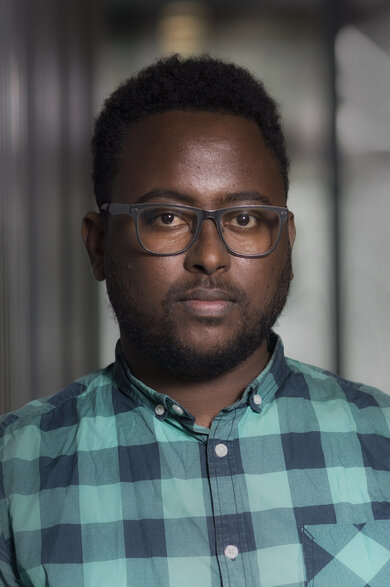
Siemawe K. Bayreu received his Bachelor’s degree in Computer Science and Engineering from Mekelle Institute of Technology, Ethiopia in July 2012. After graduation, he worked as an assistant lecturer in Aksum University and Mekelle Institute of Technology, Ethiopia. Then he received his master’s degree in Computer Science from Saarland University, Germany. His thesis project was “Comparative Evaluation of Distributional Representations of English Words in Thematic Fit Tasks.” During his master’s study, he worked as a research assistant in the Multimodal Cluster of Excellence, Saarland University, Germany. After graduation, he worked as a researcher in the Ethiopian Biotechnology Institute, AI research team. He is interested in software architecture and data analysis.
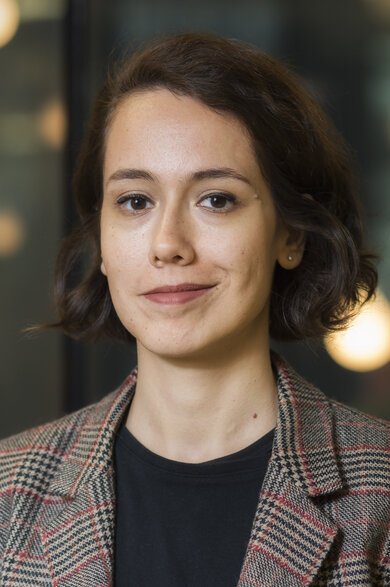
Sıla Güler graduated with a bachelor’s degree in Electrical and Electronics Engineering from Boğaziçi University in Turkey in 2012. After graduation, she worked as a technology consultant at IBM and as a consulting team lead in Accenture for five years in total. She was involved in various projects in the banking, insurance, and airline industries. During these projects, she decided to follow her passion for creating intelligent systems. Therefore, she earned a Master of Science degree in Computer Engineering at the same university. She wrote papers on sign language recognition and indoor localization. Her thesis is entitled “Radio Map Estimation With Neural Networks And Active Learning For Indoor Localization.” Her research interests are the Machine Learning and Artificial Intelligence.
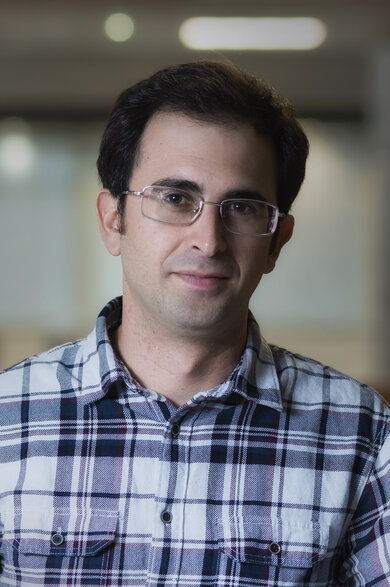
Vahe Pezeshkian received his bachelor’s degree in Information Technology Engineering from the Amirkabir University of Technology, Tehran, Iran in 2011. In 2014, he graduated from the American University of Armenia, obtaining his master’s degree in Computer and Information Science. His thesis was on implementing a Twitter-based evaluation system by applying sentiment analysis techniques. Vahe has been a Java developer for two years, participating in design and implementation of an IPTV system at Armenia’s largest telecommunication company. Afterwards, he moved to another company, which provides software-as-a-service in the project management domain, and worked as a backend software engineer for three years. His interests include software architecture, machine learning, and distributed systems.
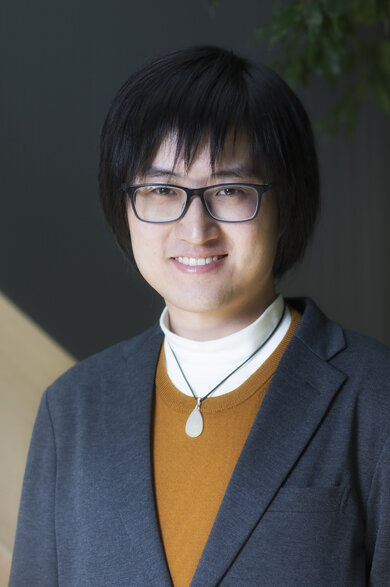
Shao Wenbin received his BSc degree in Computer Science and Technology (2013) from Minzu University of China and MSc degree in Advanced Computing-Creative Technology (2015) from the University of Bristol. Afterward, he worked in Beijing for about three years in the mobile development industry. One of the eleven apps he contributed to has achieved millions of downloads. His hobby is video gaming.
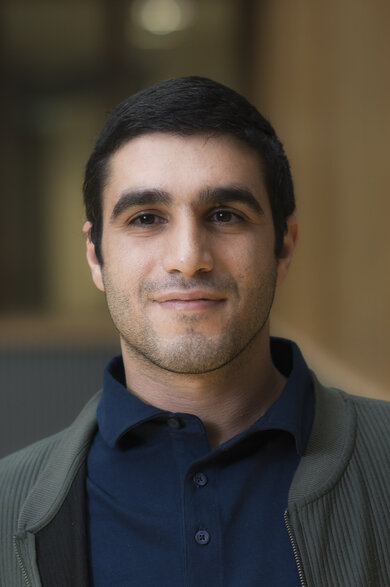
Yousef Fadila received his Bachelor in Computer Science from Technion, Haifa in 2009. From 2008 to August 2016, He worked for several enterprises (Intel, Jungo: part of Cisco, AT&T, and LivePerson) in various R&D positions in which he played a major role in the success of many projects. In August 2016, he was granted the Fulbright Scholarship to pursue a master's degree in Data Science at Worcester Polytechnic Institute (WPI). He completed his master in May 2018. His master’s final project “Digital Acquisition Data and Usage Audit” was completed in collaboration with Verti/MAPFRE insurance company.
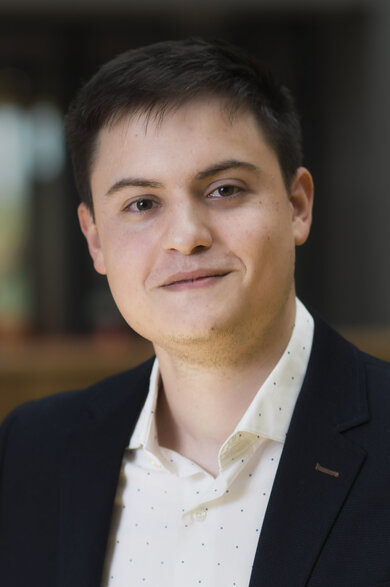
Konstantinos Manos received his BSc and MSc degree from the Computer Engineering and Informatics Department of the University of Patras, Greece in 2018. During his studies, he focused on Software Technology and Information Systems. His thesis, “Workflow Allocated Resources for Data Analytics in the Cloud”, involved the implementation of a complex scientific analysis system in a cloud environment and the automated execution and coordination of the analysis process using workflows. He is interested in Software Architecture and Application Development.